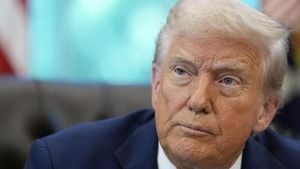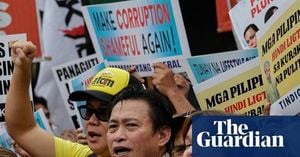On August 15, 2025, President Donald Trump met with Russian President Vladimir Putin in Alaska, hoping to broker a ceasefire between Russia and Ukraine. The meeting, which ultimately failed to secure a truce, was marked by a surprising gesture: President Trump personally handed Putin a letter from First Lady Melania Trump, urging him to act for the sake of children and future generations. This act has since ignited both praise and fierce criticism, highlighting the deep divisions in how the Trump administration’s humanitarian messaging is received at home and abroad.
According to Fox News, Melania Trump’s letter—obtained and widely circulated in the days following the summit—opened with a heartfelt appeal. "Every child shares the same quiet dreams in their heart, whether born randomly into a nation’s rustic countryside or a magnificent city-center. They dream of love, possibility, and safety from danger," she wrote. The letter never mentioned Ukraine by name but focused on the world’s duty to protect all children, closing with a direct call to action: "Mr. Putin, you can singlehandedly restore their melodic laughter. In protecting the innocence of these children, you will do more than serve Russia alone—you serve humanity itself. Such a bold idea transcends all human division, and you, Mr. Putin, are fit to implement this vision with a stroke of the pen today. It is time."
The letter’s tone and timing were not lost on President Trump, who praised his wife’s initiative during an appearance on "Fox & Friends" on August 19, 2025. "My wife, Melania, wrote that beautiful note to President Putin about children," Trump said. "The children are devastated. They're taken away from their homes." He went on to describe the devastation faced by children caught in the conflict, reinforcing the administration’s stated focus on protecting the innocent.
The Trump-Putin meeting also included a gathering of prominent European leaders, including Ukrainian President Volodymyr Zelenskyy. During this gathering, Zelenskyy delivered a sealed letter from his wife to Melania Trump. President Trump, who had not yet read the letter, relayed that Melania expressed gratitude for the gesture, and Zelenskyy later explained that the letter was meant to thank the first lady for raising awareness about children abducted from Ukraine. The issue of child abductions has plagued the conflict since its outset, with thousands of minors reportedly taken from their homes and brought to Russia. While Moscow insists these transfers are for the children’s well-being amid wartime conditions, Ukrainian families and international observers have consistently disputed the claim, arguing that many children were taken without consent.
Back in the United States, the first lady’s overture to Putin quickly became a lightning rod for criticism. On August 20, 2025, Ana Navarro, political commentator and co-host of "The View," lambasted Melania Trump’s letter as "performative hypocrisy." Posting on Instagram, Navarro juxtaposed the first lady’s appeal for global peace with the Trump administration’s own treatment of immigrant families and children within the U.S. "I just can’t with the performative, hypocrisy from these people," Navarro stated in her video, before reading Melania Trump’s words about Putin’s power to bring peace with "a stroke of the pen."
Navarro’s critique was pointed and specific. She highlighted the fear that immigrant children—many of whom are U.S. citizens—experience daily, living in constant anxiety over the possibility of their parents being detained or deported. She cited a recent incident from earlier in August, where Immigration and Customs Enforcement (ICE) mistakenly detained a disabled youth outside his school in Los Angeles. "There are children in America crying, suffering, going to bed in fear," Navarro asserted. "Returning to homes that are abandoned and empty, not knowing where their next meal is coming from because of what her husband is doing."
Navarro went further, accusing the Trump administration of dismantling U.S. aid programs that could feed starving children, separating families, removing safety nets for poor American children, and bestowing tax breaks on the ultra-wealthy. "Trump and his minions have literally destroyed U.S. aid that could feed starving children, instead of distributing it," she wrote. "They are destroying and separating families. They are taking safety nets away from poor American children and giving tax-breaks to the ultra wealthy." For Navarro, the first lady’s gesture towards Putin rang hollow when set against what she described as the administration’s domestic failings. She urged Melania Trump to focus her advocacy closer to home: "She stands a better chance of influencing Trump," Navarro suggested, "than she does influencing Putin."
The debate around Melania Trump’s letter has thus become a microcosm of broader tensions—between the administration’s stated humanitarian goals on the world stage and its contentious domestic policies. Supporters, like former White House press secretary Dana Perino, argued on Fox News that the first lady’s intervention was significant and had "an influence" in moving negotiations forward. "The first lady has had an influence here," Perino said on "Fox & Friends." "They are mission-focused on the innocents and the lives."
Yet the reality on the ground remains fraught. Despite Melania Trump’s plea and the high-profile summit, the August 15 meeting in Alaska ended without a ceasefire. President Trump, however, announced he was working to facilitate a direct meeting between Zelenskyy and Putin, raising hopes that further diplomatic engagement could yet yield results. Meanwhile, the issue of abducted Ukrainian children continues to draw international condemnation. In June 2025, members of Congress introduced a bipartisan resolution demanding the return of these children before any peace agreement is finalized—a move reflecting growing bipartisan concern in Washington.
Melania Trump’s letter, with its universal language and evocative imagery, sought to rise above the particulars of conflict and politics. "Every child shares the same quiet dreams in their heart," she wrote, "They dream of love, possibility, and safety from danger." But as the response from Ana Navarro and others has shown, such gestures are inevitably judged against the backdrop of policy and practice at home. The question lingers: can a symbolic act on the world stage inspire real change, or does it risk being overshadowed by contradictions closer to home?
For now, the world watches as diplomatic efforts continue and public debate rages on. Melania Trump’s letter has succeeded in drawing attention to the plight of children in war, but it has also reignited scrutiny of the administration’s treatment of vulnerable children within its own borders. Whether this moment leads to meaningful action—abroad or at home—remains to be seen.




